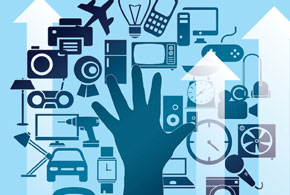Every day, we hand more and more control over to technology and automated systems. We have cars that can automatically steer and brake, lighting systems and alarms that turn on and off on their own, and smart thermostats and irrigation systems that require no human interaction.
As robots, drones and fully autonomous vehicles take shape, they are changing the way people think about life—and technology itself. A recent study conducted by public relations agency Finn Partners offers some insights into consumer sentiments about the technology.
Here are some key findings:
The smart home has arrived. Eighty-six percent of the consumers surveyed said they know what it means when someone says they have a “smart home.”
Robots will rule. Seventy-seven percent believe it will be normal to have a robot in their home within 20 years.
Americans are on board with health tracking. Seventy percent of those polled want to let their doctors monitor their health remotely, a sentiment that rises to 81 percent among the study respondents who are under 45 years of age.
However, the Finn Futures study also found that consumers have some serious concerns, which often revolve around a sense of control. For example, only 15 percent of the respondents indicated that they are “extremely excited” about automated vehicles, and 59 percent said they are not at all receptive to the idea.
Others expressed concerns about managing the technology, as well as security and privacy. In addition, 59 percent cited cost as a barrier to smart home technology.
We are only at the beginning of the digital revolution. Although advances typically occur faster than humans can adapt, it’s important to recognize something else: Enterprise leaders—along with engineers, designers and software developers—must have a better understanding of consumer thinking when designing and building products and services.
For example, the Finn study found that younger people are more comfortable with emerging smart technologies than their older counterparts. That’s not a surprise. Yet, at the same time, these younger adults are more likely to cite privacy concerns. Overall, 26 percent under the age of 45 cited privacy and security as concerns, whereas only 16 percent of those older than 45 expressed the same concerns.
“Emotion plays an important role when it comes to consumers’ willingness to adopt connected technology,” said Sabrina Horn, managing partner for the U.S. technology practice at Finn Partners.









